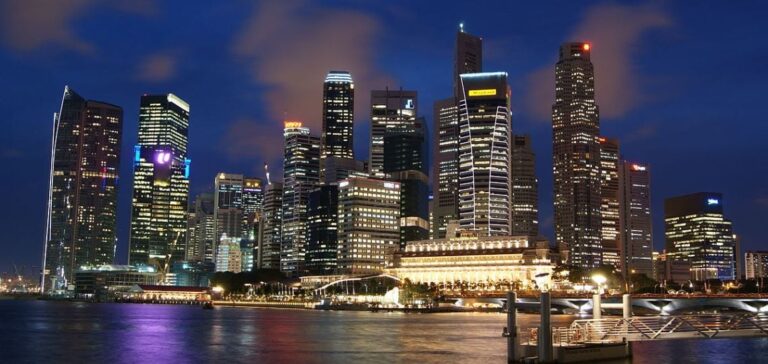Faced with ever-increasing energy demand, Singapore is stepping up initiatives to secure its renewable energy supply.
The city-state, heavily dependent on imported oil and gas, is actively exploring partnerships with countries such as Australia, Cambodia, Indonesia and Vietnam.
These initiatives aim to integrate a growing share of electricity generated from renewable sources, mainly solar, wind and hydroelectric. Australia, in particular, is planning to build the world’s largest solar power plant in the north of the country.
Singapore plans to import some of this electricity via an undersea cable over 4,000 kilometers long.
This strategic project is part of a drive to diversify energy sources in the face of complex logistical challenges and geopolitical considerations.
Logistics challenges and strategic implications
Transporting renewable energy over long distances, particularly via undersea infrastructures, raises questions of energy loss and cost.
At the same time, renewable energy supplies from countries such as Cambodia and Indonesia offer a complementary alternative to meet Singapore’s growing energy needs.
Diversification of sources is crucial for Singapore.
Over-reliance on a single import source could limit its strategic flexibility, exposing the country to risks in the event of disruptions.
Acquiring new energy sources, incorporating a variety of regional solutions, enhances energy security and supports the country’s decarbonization objectives.
A strategy aligned with regional trends
The growing use of imported renewable energy is part of a regional trend in which several countries, such as Thailand, are already importing part of their electricity.
By increasing its capacity to import renewable energies, Singapore is participating in a regional dynamic aimed at meeting energy needs while integrating more environmentally-friendly solutions.
This import and diversification strategy is in line with Singapore’s energy security objectives, while offering opportunities to strengthen regional cooperation in the energy field.
The planned infrastructure, particularly with Australia, reflects a long-term commitment to securing stable and diversified supplies for decades to come.






















